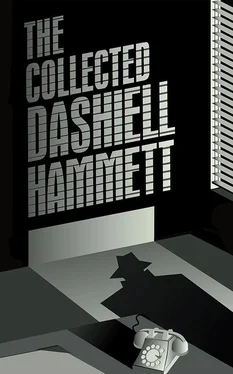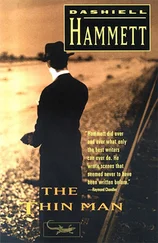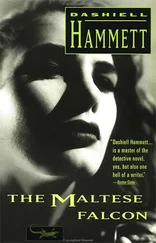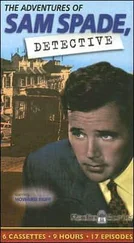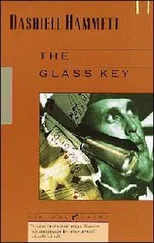Jeffol was a good Moro — a good companion in a fight or across a table. Tall for a Moro, nearly as tall as I am, he had a deceptive slimness that left you unprepared for the power in his snake-smooth muscles. His face was cheerful, intelligent and almost handsome, and he carried himself with a swagger. His hands went easily to the knives at his waist, and against his hide — sleeping or waking — he wore a sleeveless fighting-jacket with verses from the Koran on it. The jacket was his most prized possession, next to his anting-anting.
His elder brother was datto, as their father had been, but this brother had inherited little of either his father’s authority or his father’s taste for deviltry. The first had been diluted by the military government, and Jeffol had got most of the second. He ran as wild and loose as his pirate ancestors, until Langworthy got hold of him.
Langworthy was on the island when I came there. He hadn’t had much luck. Mohammedanism suited the Moros, especially in the loose form they practised. There was nothing of the solemn gangling horse-faced missionary about Langworthy. He was round-chested and meaty; he worked with dumb-bells and punching-bag before breakfast in the morning; and he strode round the island with a red face that broke into a grin on the least excuse. He had a way of sticking his chin in the air and grinning over it at you. I didn’t like him.
He and I didn’t hit if off very well from the first. I had reasons for not telling him where I had come from, and when he found I intended staying a while he got a notion that I wasn’t going to do his people — he called them that in spite of the little attention they paid him — any good. Later, he used to send messages to Bangao, complaining that I was corrupting the natives and lowering the prestige of the white man.
That was after I taught them to play blackjack. They gambled whenever they had anything to gamble for, and it was just as well that they should play a game that didn’t leave too much to luck. If I hadn’t won their money the Chinese would have, and anyway, there wasn’t enough of it to raise a howl over. As for the white man’s prestige — maybe I didn’t insist on being tuaned with every third word, but neither did I hesitate to knock the brown brothers round whenever they needed it; and that’s all there is to this keeping up the white man’s prestige at best.
A couple OF years earlier — in the late ’90s — Langworthy would have had no difficulty in getting rid of me, but since then the government had eased up a bit. I don’t know what sort of answers he got to his complaints, but the absence of official action made him all the more determined to chase me off.
“Peters,” he would tell me, “You’ve got to get off the island. You’re a bad influence and you’ve got to go.”
“Sure, sure,” I would agree, yawning. “But there’s no hurry.”
We didn’t get along together at all, but it was through my blackjack game that he finally made a go of his mission, though he wouldn’t be likely to admit it.
Jeffol went broke in the game one night — lost his fortune of forty dollars Mex — and discovered what to his simple mind was the certain cause of his bad luck. His anting-anting was gone, his precious luck-bringing collection of the-Lord-knows-what in a stinking little bag was gone from its string round his neck. I tried to buck him up, but he wouldn’t listen to reason. His security against all the evils of this world — and whatever other worlds there might be — was gone. Anything could happen to him now — anything bad. He went round the village with his head sagging down until it was in danger of being hit by a knee. In this condition he was ripe fruit for Langworthy, and Lang-worthy plucked him.
I saw Jeffol converted, although I was too far away to hear the talk that went with it. I was sitting under a cottonwood fixing a pipe. Jeffol had been walking up and down the beach for half an hour or more, his chin on his chest, his feet dragging. The water beyond him was smooth and green under a sky that was getting ready to let down more water. From where I sat, his round turban moved against the green sea like a rolling billiard-ball.
Then Langworthy came up the beach, striding stiff-kneed, as a man strides to a fight lie counts on winning. He caught up with Jeffol and said something to which the Moro paid no attention. Jeffol didn’t raise his head, just went on walking, though he was polite enough ordinarily. Langworthy fell in step beside him and they made a turn up and down the beach, the white man talking away at a great rate. Jeffol, so far as I could see, made no reply at all.
Facing each other, they suddenly stopped. Langworthy’s face was redder than ever and his jaw stuck out. Jeffol was scowling. He said something. Langworthy said something. Jeffol took a step back and his hand went to the ivory hilt of a kris in his belted sarong. He didn’t get the kris out. The missionary stepped in and dropped him with a hard left to the belly.
I got up and went away, reminding myself to watch that left hand if Langworthy and I ever tangled. I didn’t have to sit through the rest of the performance to know that he had made a convert. There are two things a Moro understands thoroughly and respects without stint — violence and a joke. Knock him round, or get a laugh on him, and you can do what you will with him — and he’ll like it. The next time I saw Jeffol he was a Christian.
In spite of the protests of the datto, a few of the Moros followed Jeffol’s example, and Langworthy’s chest grew an inch. He was wise enough to know that he could make better progress by cracking their heads together than by arguing the finer theological points with them, and after two or three athletic gospel-meetings he had his flock well in hand — for a while.
He lost most of them when he brought up the question of wives. Women were not expensive to keep down there and, although the Moros on that particular island weren’t rolling in wealth, nearly all of them could afford a couple of wives, and some were prosperous enough to take on a slave girl or two after they had the four wives their law allowed. Langworthy put his foot down on this. He told his converts they would have to get rid of all except the first wives. And of course all of his converts who had more than one wife promptly went back to Allah — except Jeffol.
He was in earnest, the only idea in his head being to repair the damage done by the loss of his anting-anting. He had four wives and two slaves, including Dinihari. He wanted to keep her and let the others go, hut the missionary said no. Jeffol’s number one wife was his only real wife — thus Langworthy. Jeffol almost bolted then, but the necessity of finding a substitute for his anting-anting was strong in him. They compromised. He was to give up his women, go to Bangao for a divorce from his first wife, and then Langworthy would marry him to Dinihari. Meanwhile the girl was turned over to the datto for safe keeping. The datto’s wife was a dish-faced shrew who had thus far prevented his taking another wife, so his household was considered a safe harbor for the girl.
Three mornings after Jeffol’s departure for Bangao we woke to find Levison among us. He had come in during the night, alone, in a power-yawl piled high with wooden cases.
Levison was a monster, in size and appearance. Six and a half feet high he stood and at a little distance you took him for a man of medium height. There were three hundreds pounds of him bulging his clothes if there was an ounce — not counting the hair, which was an item. He was black hair all over. It bushed out from above his low forehead to the nape of his neck, ran over his eyes in a straight thick bar, and sprouted from ears and great beaked nose. Below his half-hidden dark eyes, black hair bearded his face with a ten-inch tangle, furred his body like a bear’s, padded his shoulders and arms and legs, and lay in thick patches on fingers and toes.
Читать дальше
